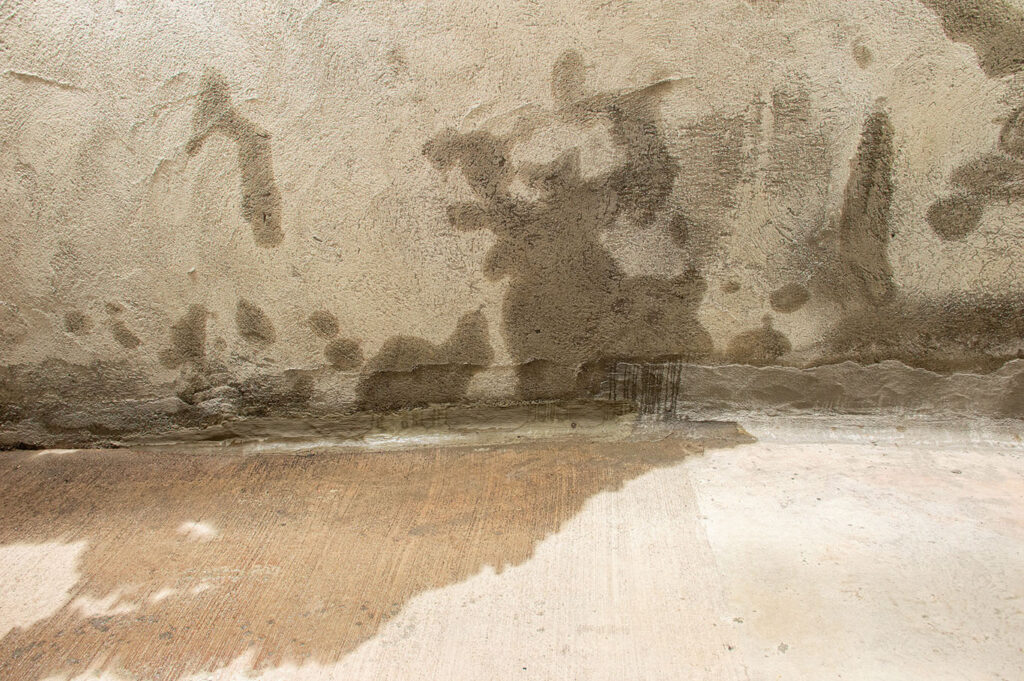Understanding and Preventing Slab Leaks in Older Georgia Homes
Expert Solutions for Your Plumbing Problems

4.9 Stars | 1,050+ Reviews

Many homes in Kennesaw and across Georgia were built on concrete slab foundations, a practical and cost-effective construction method in this region. While slab foundations are durable, the plumbing lines running beneath them can deteriorate over time.
This can lead to a serious issue known as a slab leak—something every homeowner should understand, especially if your house is a few decades old.
This article explains what slab leaks are, why older homes are more vulnerable, the telltale signs of a slab leak, and how to prevent expensive damage through proactive plumbing care with Integrated Plumbing Solutions.
Call Now (678) 627-10671. What Is a Slab Leak?
A slab leak occurs when a water line beneath your home’s concrete foundation develops a crack or hole, allowing water to escape into the ground or the slab itself. These leaks often affect hot water lines due to repeated expansion and contraction from heating cycles. Since the pipes are buried under layers of concrete, leaks can remain hidden for weeks or even months, silently causing structural damage and mold growth. Left unchecked, a slab leak can erode the soil beneath your foundation, leading to cracks, shifting floors, and even long-term instability of your home.
2. Why Older Georgia Homes Are at Higher Risk
Homes built before the 1990s commonly used copper or galvanized steel pipes. Over decades, these materials corrode, pit, or thin out, making them more prone to leaks. Other contributing factors include:
- Soil movement: Georgia’s clay-heavy soil can swell during rainy seasons and contract during droughts, placing stress on pipes.
- Pipe abrasion: Pipes installed close to the slab may rub against concrete, wearing thin over time.
- Hard water: Mineral buildup inside pipes accelerates corrosion, a frequent problem in some parts of Kennesaw.
When combined with decades of normal wear, these conditions make older homes significantly more vulnerable to slab leaks. If your property hasn’t had a professional plumbing inspection in years, it’s worth scheduling one to assess the state of your pipes.
3. Signs You May Have a Slab Leak
Slab leaks don’t always announce themselves clearly, but early detection can save thousands of dollars in repairs. Watch for these signs:
- Unexplained spikes in your water bill.
- Warm spots on flooring, especially in areas without radiant heating.
- Damp or moldy carpets and a persistent musty odor.
- The sound of running water when all faucets are off.
- Unexplained drops in water pressure.
- Cracks forming in walls, flooring, or the foundation itself.
Act quickly if you notice these signs. Ignoring a slab leak can lead to major water damage, mold growth, and even compromised structural integrity of your home. Call for emergency leak plumbing service in Kennesaw before the situation escalates.
Call Now (678) 627-10674. How Slab Leaks Are Detected
Because slab leaks are hidden under layers of concrete, specialized equipment is needed to locate them accurately:
- Acoustic listening devices: Detect the sound of pressurized water escaping underground.
- Infrared cameras: Identify unusual hot spots caused by leaking hot water lines.
- Pressure testing: Confirms a leak and pinpoints its location within the plumbing system.
Trying to detect a slab leak yourself often wastes valuable time and can lead to unnecessary property damage. Integrated Plumbing Solutions uses non-invasive technology to quickly identify leaks and minimize disruption to your home.
5. Slab Leak Repair Options
Once a slab leak is found, repair methods depend on the severity and overall condition of your plumbing system:
- Spot repair: A targeted fix for small, isolated leaks where pipe access is straightforward.
- Re-piping or rerouting: Ideal for older homes with widespread pipe deterioration or recurring leaks, replacing the system with long-lasting materials.
- Epoxy pipe coating: A trenchless solution that seals leaks internally and reinforces existing pipes when full replacement isn’t necessary.
An experienced plumber will explain your options and help you choose the most cost-effective and durable solution for your home’s needs. Scheduling timely leak repair services in Kennesaw can prevent repeated slab issues down the line.
6. How to Prevent Slab Leaks in Older Homes
Proactive care is your best defense against slab leaks:
- Schedule professional plumbing inspections every few years to catch small issues early.
- Consider replacing outdated copper or galvanized pipes with modern materials like PEX or PVC.
- Monitor water pressure—high pressure strains pipes and accelerates wear. Install a regulator if needed.
- If your area has hard water, invest in whole-home water treatment to reduce mineral buildup.
- Address minor leaks in bathroom plumbing or kitchen plumbing immediately to avoid hidden damage spreading to slab lines.
Preventative maintenance is far less expensive than repairing foundation damage caused by a long-term slab leak. Regular attention to your home’s plumbing can extend its life by decades.
Call Now (678) 627-1067The True Cost of Ignoring a Slab Leak
Many homeowners hesitate to call a plumber due to cost concerns, but delaying action often makes things worse. A small slab leak can erode the foundation soil, crack flooring, damage drywall, and create hazardous mold conditions. What might have been a minor pipe repair can snowball into tens of thousands in structural repairs if left untreated.
Don’t Wait for Slab Leaks to Become a Disaster
Slab leaks are more than a plumbing issue—they can threaten the safety and value of your home. Older homes in Kennesaw are particularly at risk, but you can protect your investment with regular inspections, timely leak detection, and professional repairs.
If you suspect a slab leak or simply want peace of mind about your plumbing system, contact Integrated Plumbing Solutions today. Our experienced team offers fast, reliable detection and repair services to keep your home safe, dry, and worry-free.
